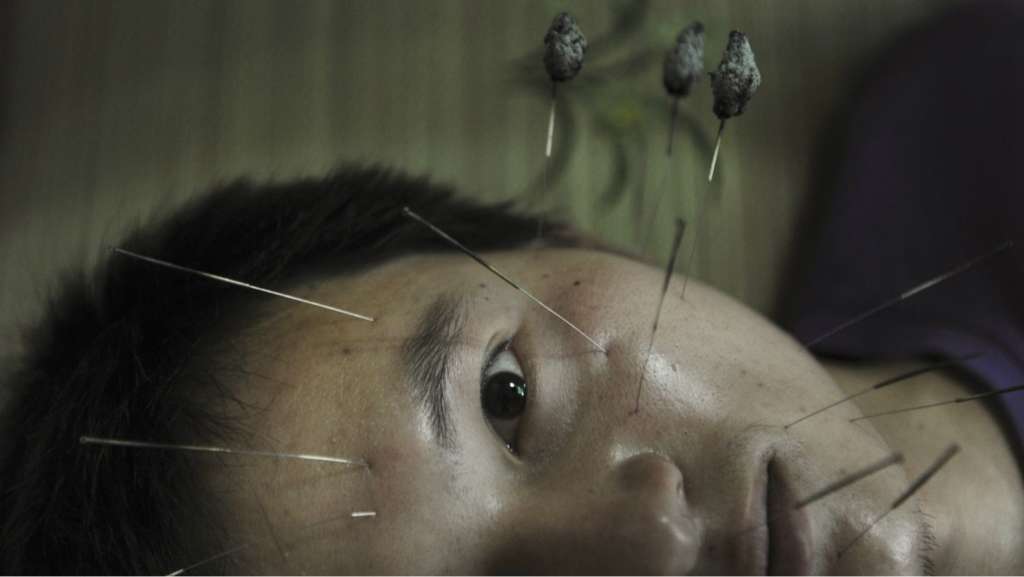Cambridge (Massachusetts)- This ancient practice can be used alone or with conventional therapy to help ease your pain. Men looking for an easy and effective means to manage pain should consider acupuncture.
Hugo Lopez, a licensed acupuncturist with Harvard-affiliated Massachusetts General Hospital Cancer Center, says there are many different types of pain: neuropathic, muscular, and degenerative joint, and all of which can make management complex. He added that sometimes you need to treat not just the physical components, but also the psychological ones, and that is where acupuncture can help, as it addresses both problems.
*Acupuncture
How it works? Acupuncture has been used in traditional Chinese medicine for more than 2,000 years to treat almost any kind of physical or emotional ailment.
In theory, it works like this: Hair-thin needles are inserted into specific points that fall on certain pathways in your body called meridians. This stimulation is thought to release energy, or “qi” (pronounced “chee”), that may be blocked because of illness or other imbalances. When the energy flows freely, the body’s nervous, endocrine, digestive, and immune systems can function at optimum levels.
Acupuncture is often used to address chronic pain issues ranging from low back pain to migraines, as well as other problems driven by stress and tension.
How the body specifically reacts to acupuncture is still being explored. However, initial research has shown that it may change how the brain perceives pain. In a study that was reported in the Journal of Alternative and Complementary Medicine, 18 healthy people underwent brain scans while an electrical pain stimulus was applied to their left ankle. Needles were then placed at three locations, between the toes, below the knee, and near the thumb, and the scan was repeated while the electrical stimulus was again directed at the left ankle. The scans showed less activation of brain areas involved in pain perception while the needles were in place.
*Healing Acceleration
Acupuncture also may quicken recovery. A review published in the January 2017 Program Grants for Applied Research examined 29 trials involving 18,000 people diagnosed with chronic pain in the neck, lower back, head, or knee. The report showed that the addition of acupuncture, compared with just standard medical care, reduced the number of headaches and migraine attacks and lowered the severity of neck and lower back pain. Keep in mind that acupuncture may not work for everyone, and other research has shown poor or mixed results. For instance, a 2014 study in The Journal of the American Medical Association found acupuncture was not more effective than a sham acupuncture treatment for treating knee arthritis.
*What to expect
During your initial visit, the acupuncturist evaluates your health history, including your current symptoms and lifestyle habits. The number of needles and locations during a treatment depends on your ailment. Acupuncture needles range in size from 0.14 to 0.2 millimeters in diameter and have fine tapered tips. (In comparison, human hair is about 0.18 millimeters.)
The needles are inserted with a guide tube and stay in place for five to 30 minutes. “Most people do not feel them being inserted. Other times, you may feel an initial tingling or electrical sensation that quickly fades,” says Lopez.
If you are hesitant about needles, you can try “no needle” acupuncture, also called acupressure, in which the points on the meridians are stimulated with manual pressure, and low-level cold laser therapy that you cannot feel at all.
Your number of treatments can vary from one to two per week for one to several months. Some people may experience relief after the first session, while others feel the effects after many weeks. After the initial series of treatments, you might return for regular follow-ups.
Medicare does not cover acupuncture, but some private insurers do. The out-of-pocket costs can range from $60 to $120 per session.
Harvard Men’s Health Watch
What acupuncture can treat?
Chronic pain
Low back pain
Migraines
Irritable bowel syndrome
Depression
Insomnia
Constipation
Osteoarthritis
Peripheral neuropathy
Carpal tunnel syndrome
